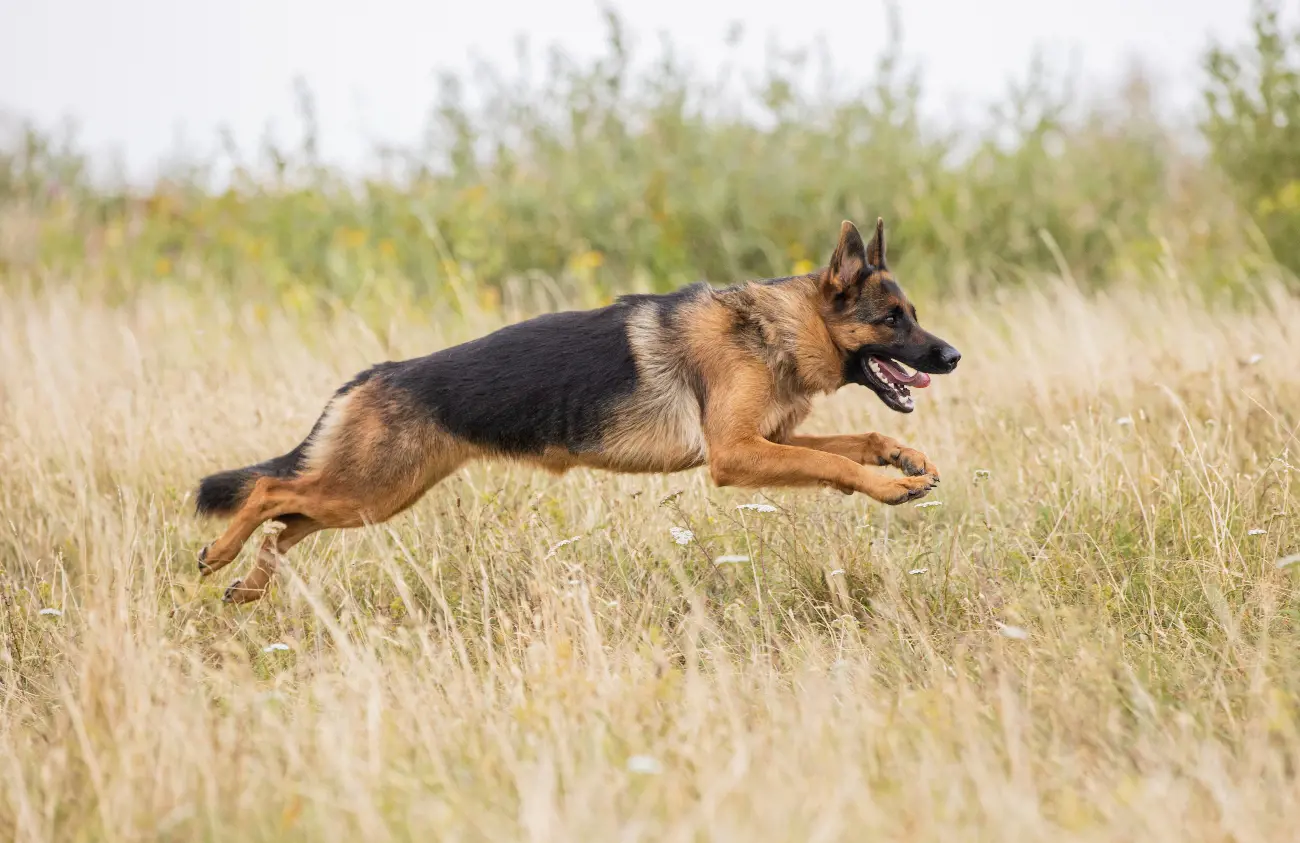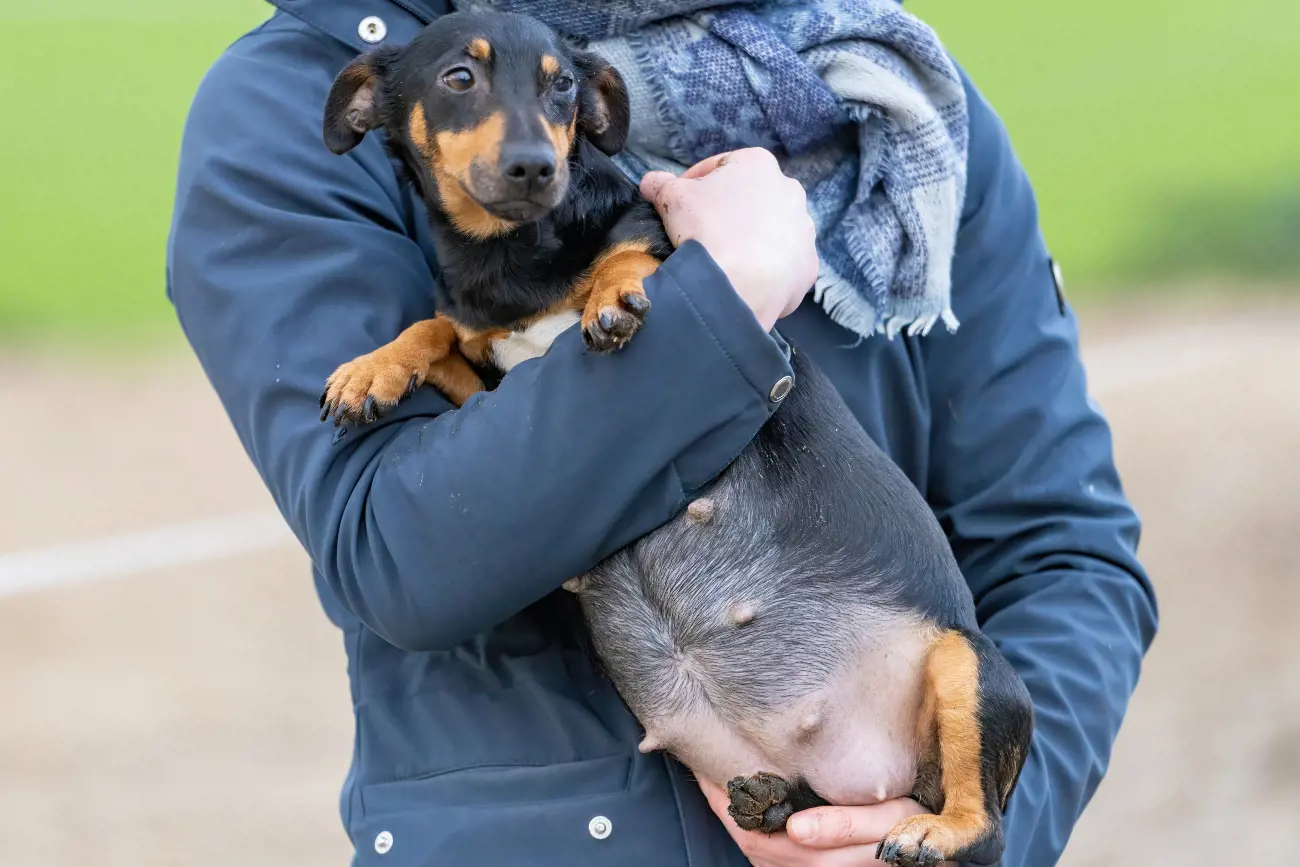Why is my dog staring at the wall?
31st January, 2023
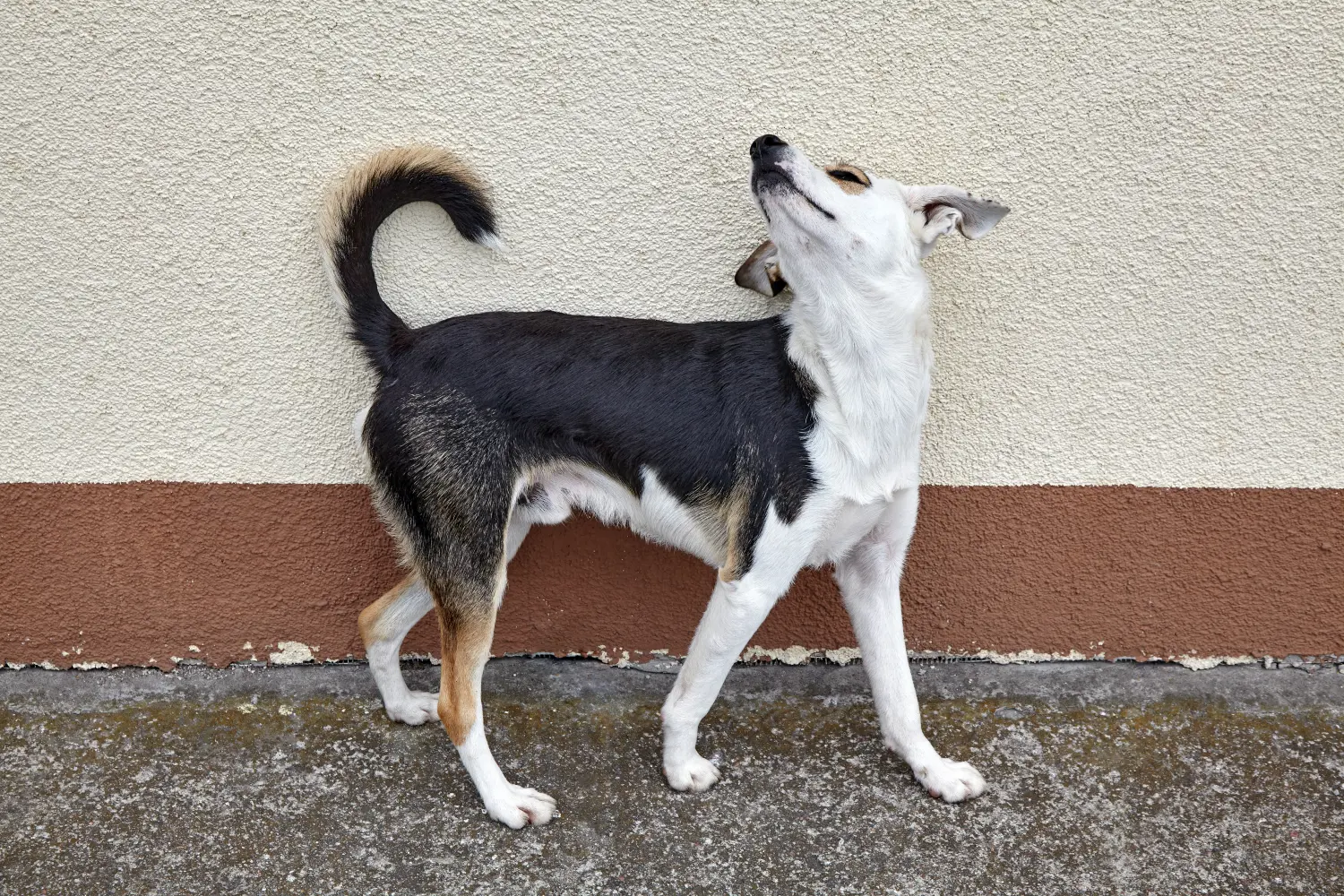
Got a dog that won’t quit staring at walls? Get to know why they might be doing it and what you can do to help.
Our four-legged friends are masters of weird and wonderful behaviour, often making us chuckle in the process. Sometimes, though, they do something that seems a little odd or makes us worry, like staring intently at the wall.
Are they in a daze? Is there something only they can see? Don’t worry, we get this can be a bit disconcerting, but we’re here to help.
Learn why your pooch can’t take their eyes off the wall and if it’s anything serious. We’ll also look at when to take them to the vet and why specialist dog insurance is an essential to protect your furry family member.
Why do dogs stare at the wall?
Whether your pup spends the odd moment here and there staring into space or sits for longer periods wall-watching, it can make you wonder what’s causing this behaviour.
It might be that something just caught their attention, but it can also signal a serious health concern you need to get checked out.
If you’re worried about your dog and want some answers, a visit to the vet is a must. Need some quick advice about how to deal with your hound’s behaviour? Use your Purely Pets dog insurance to contact our 24/7 vet video service to speak to a professional fast.
Let’s take a closer look at the most common reasons why dogs stare at walls.
They hear or see something
A dog’s hearing is a lot better than ours, and even the slightest sound can encourage them to start investigating. You might spot their head tilting from side to side with pricked ears, too. Perhaps they’re scratching at the floorboards? If this happens a lot, you might want to call pest control!
Shadows, lights and insects can also divert your dog’s gaze towards the wall. Make sure you have a good look to see if there’s anything there before booking an appointment with the vet.
Canine cognitive dysfunction (CCD)
CDD, or doggy dementia, can make your dog confused and cause them to develop some odd behaviour, like staring at walls. Similarly to Alzheimer’s in humans, we still aren’t 100% sure how it works, but it seems that brain changes as your dog ages are the cause.
Look out for other tell-tale signs, like:
- Going to the toilet inside the house.
- Barking for no apparent reason.
- Decrease in social interaction.
- A change in sleeping patterns, like spending more time awake at night.
- Generally disorientated and seeming ‘lost’ at home.
- Less interested in going outdoors.
If you suspect this could be the cause of your dog’s wall gazing, speak to your vet. Although there’s no cure for CDD, you might be able to manage your pet’s condition with supplements and a special diet.
Seizures
What’s the first thing you picture when you think of a seizure? Uncontrollable shaking? Your dog becoming unconscious? You’re right, but a seizure can sometimes manifest in other ways, too, like freezing and your dog staring into space.
This is particularly common with focal or partial seizures, so if your dog’s staring is sudden and they seem like they’re in a daze, this could be why.
If you think your pet is having a seizure, it’s best to stay back. You might be tempted to comfort them with a stroke or hug (we know it’s tough not to), but doing so could cause your pup to lash out and bite, even though they don’t mean you any harm.
In a few minutes, your dog should return to normal, but you should still see the vet. Leaving them could mean it happens again or their condition gets worse, and no pet parent wants that.
Don’t let the cost of vet bills sway you – your dog insurance can help cover the cost of emergency treatment if your dog needs it.
We’ve got lots more helpful information on how to cope with dog seizures elsewhere on our blog.
Attention seeking
Why would your dog seek your attention by looking at a wall? It might seem odd, but if you gave it some fuss or any sort of recognition after they did it a few times, it could lead to attention-seeking behaviour.
Compulsive behaviour
Every dog is unique with their own personality and quirks – that’s why we love them! But sometimes these traits turn into compulsive behaviours and habits that your pup can’t shake.
Apart from staring at the wall, other examples include:
- Excessive licking
- Barking more than normal
- Circling and pacing
- Chasing its tail
These signs of compulsive behaviour disorder (CBD) are often harmless and sometimes come from a genetic predisposition. They don’t usually have negative consequences, but if you’re worried about your pet’s personality changes, don’t hesitate to speak to your vet!
With dog insurance from Purely Pets, you can have a video chat with a vet at a time that suits you.
Depression
Although it’s sad to think about, dogs can develop anxiety and depression just like humans. Staring blankly at the wall or into space could be a sign that your pet is withdrawn.
The Kennel Club says to watch out for other changes, including:
- Low energy levels
- Losing interest in activities
- Less sociable
- Inability to settle
- A change in sleeping patterns
- Excessive licking or chewing
Again, getting your pet to the vet as soon as possible is the best way to get them back to their happy and playful self. You can also make some lifestyle changes to help boost their mood by:
- Upgrading their dog food.
- Providing more exercise opportunities – exercise releases dopamine, improving your dog’s mood.
- Making time for your dog every day – try not to leave them alone for long periods and be sure to provide plenty of cuddles when you get home.
- Teaching them new tricks – it doesn’t matter how young or old your pooch is. Learning new skills gives them a purpose and they’ll have fun bonding with you while you’re at it.
Is staring a sign of aggression?
If your beloved pet is gazing at the wall, it’s likely nothing to do with aggression. When their glare becomes fixated on another person or animal, however, it’s time to take a step back.
Observe your pooch for other warning signs, including:
- Snarling
- Growling
- Barking
- Snapping
- Lunging
You’ll find some tips on how to act in these circumstances in our article on how to calm down an angry dog.
If your dog behaves this way, your vet will likely refer you to a Clinical Animal Behaviourist, like Rosie Bescoby. Rosie has plenty of experience helping owners and their pups and has shared some top behavioural tips in her latest video series for Purely Pets.
Can you stop your dog staring at walls?
In some cases, you can stop your pet glaring at a blank space, but you’ll need to uncover why they’re doing it in the first place.
If your dog is staring due to sights and sounds, you’ll need to eliminate the cause, which could mean getting rid of pests or closing the curtains to stop a shadow or light on the wall.
When behavioural issues are concerned, speak with your vet to see if a specialist might be able to help.
For seizures and CCD, a vet visit is in order to diagnose their condition and get the best treatment plan.
How do dogs see?
All this talk about staring dogs might have you wondering what they actually see in the first place. Well, they can’t see quite as well as us but their night vision is far superior.
They also have an astute sense of smell and hearing, meaning they don’t rely on their sight as much as we do.
If you want to learn more facts about your pup’s eyesight, we’ve got plenty elsewhere on our site.
Can my dog see ghosts?
A quick look on Google, and you might start thinking you’re living on the set of the next Paranormal Activity film! But don’t worry – the weird and wonderful theories aren’t based on fact or scientifically proven.
Yes, some people believe our canine companions have a heightened sense when it comes to the supernatural, but we think it’s safer to call your vet instead of Ghostbusters on this one.
Why do elderly dogs stare at walls?
Not all elderly canines do this, but if you’ve got a senior pet staring into the abyss, it may be due to doggy dementia. Watch out for the other signs we mentioned above to see if this is the underlying cause of your pet’s odd behaviour.
Your geriatric pooch could also be going blind, causing it to look as though it’s staring at nothing. Your vet should be able to refer your pet for eye tests to confirm the condition.
Has your dog recently been diagnosed? The RSPCA have some helpful tips on looking after blind and visually impaired dogs.
Get dog insurance for your precious pet
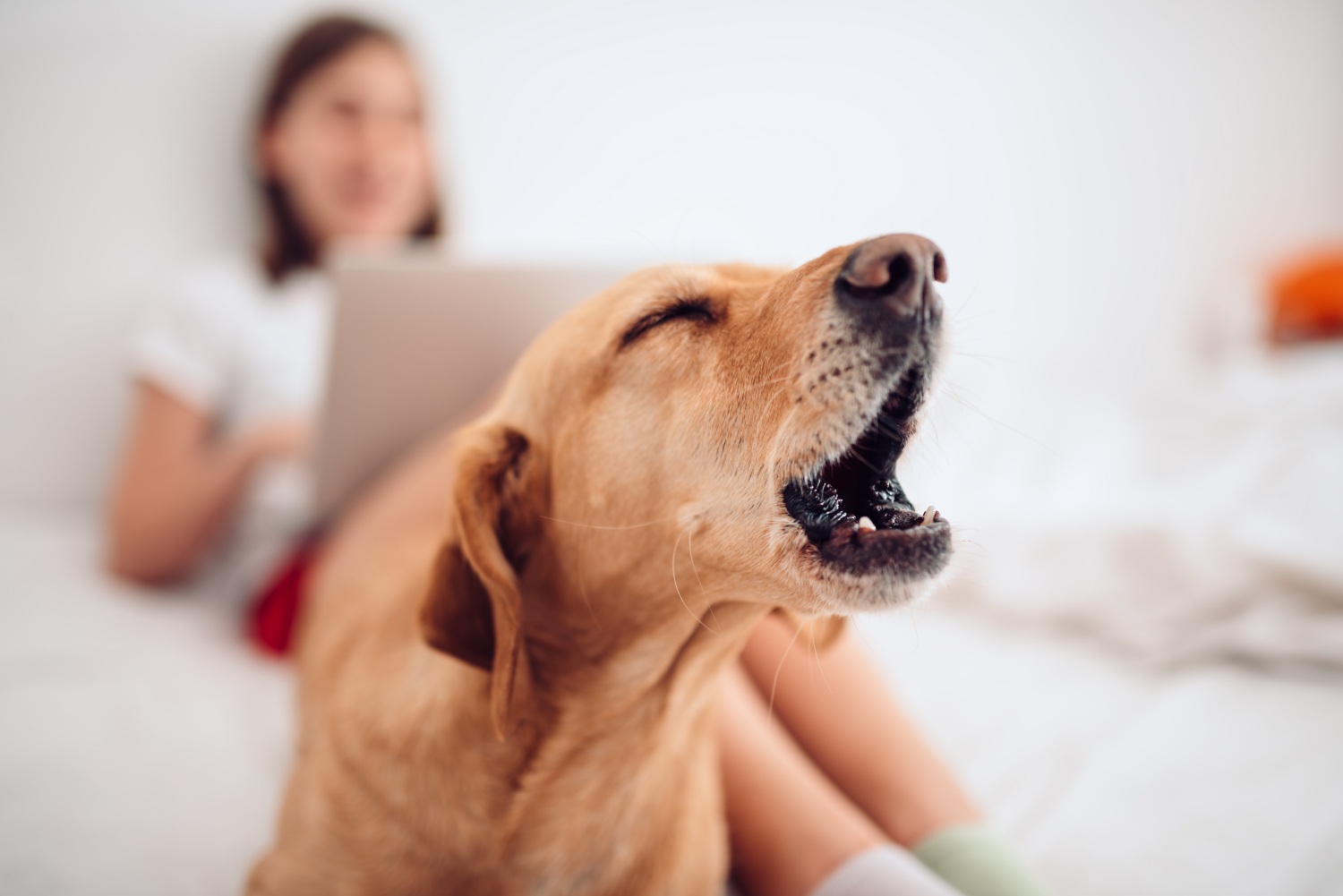
As a doting pet parent, it’s worrying when something’s up with your pooch. With dog insurance from Purely Pets, you can get them the help they need in an emergency and let us take care of those unexpected vet bills.
Our easy-to-use online portal makes managing your policy simple, and professional advice is only a click away via our 24-hour vet video service.
We insure from as young as 8 weeks old and there’s no upper age limit for those golden oldies either! So, get in touch with Purely Pets today and get the dog insurance your pet deserves.
Helpful Pages
Recent Posts
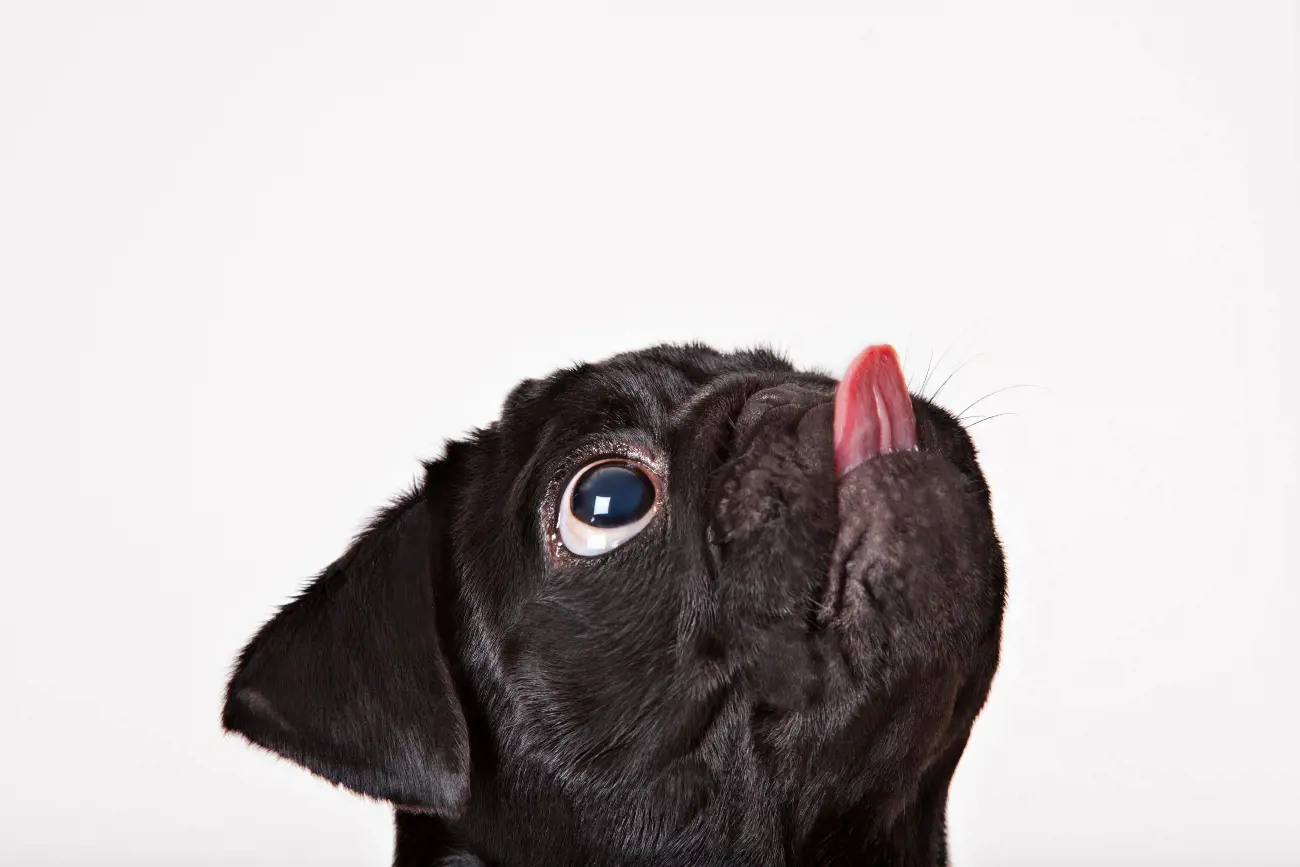
Why do Pugs lick the air?
02/10/24Pet Insurance Quote
- 98% claims paid *
- Claims paid directly to vets
- 24/7 vet video consultations
- Interest free monthly payments


